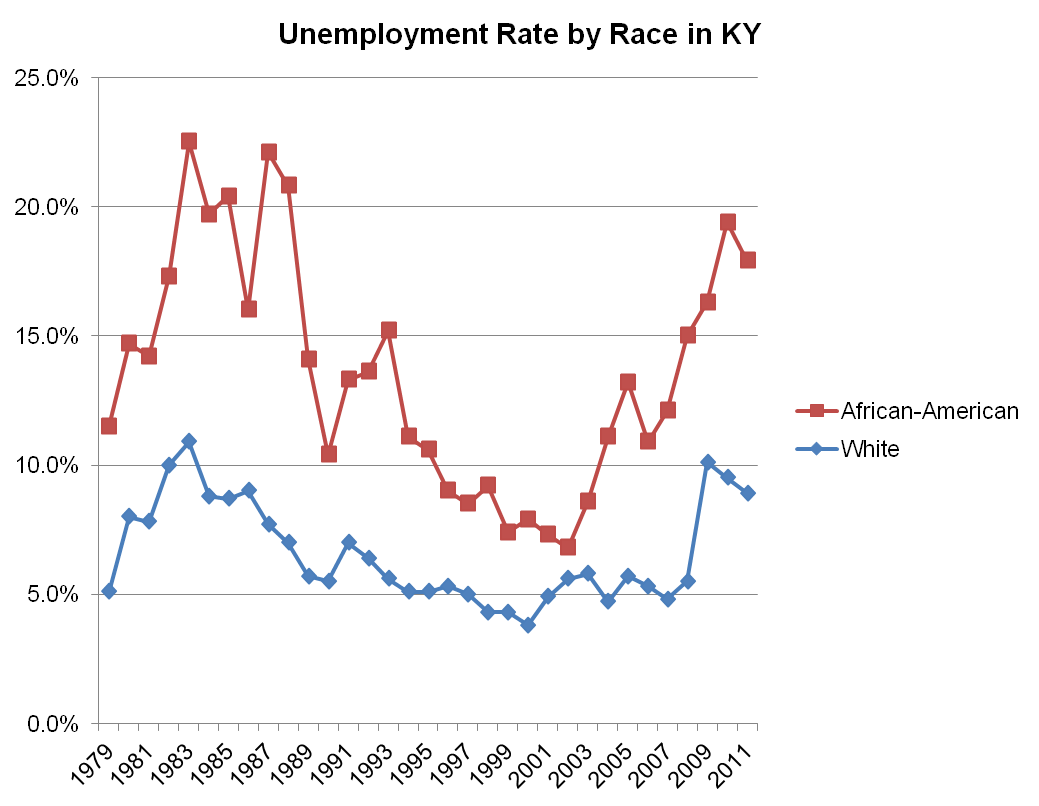The weak economy of the last few years has had far-reaching effects, but some groups have been harder hit than others. In particular, African Americans in Kentucky have suffered enormous job losses and continue to face a daunting labor market.
Over the last decade, unemployment for white Kentuckians remained consistently just below the state unemployment rate, while unemployment for African Americans was substantially higher—particularly toward the end of the decade. For whites, unemployment grew from 4.9 percent in 2001 to 10.1 percent in 2009, before dropping to 8.9 percent in 2011. In contrast, African American unemployment shot up from 7.3 percent in 2001 to 16.3 percent in 2009—and peaked at 19.4 percent in 2010.
The gap between the unemployment rates of whites and African Americans in Kentucky had nearly closed during the late 1990s and early 2000s, when the country was at near full employment. In 2002, the difference in unemployment rates for the two groups was only 1.2 percentage points. In 2010, the unemployment rate was 19.4 percent for African Americans and 9.5 percent for whites—a difference of nearly 10 percentage points.
Source: Economic Policy Institute Analysis of Current Population Survey Data
African Americans are also more likely to be underemployed—meaning they are either unemployed and actively looking for work, employed part-time but would prefer a full-time job, are discouraged from finding a job or are unable to work because of a barrier like child care or transportation. In 2011, the underemployment rate for African Americans in Kentucky was 25.8 percent—compared to 14.5 percent for whites. Like the unemployment rate, the underemployment rate has grown considerably for African Americans in recent years; it was only 10.3 percent in 2001.
The state is experiencing the beginnings of economic recovery, but African Americans continue to face an extremely difficult labor market. In order for these inequalities to decrease markedly, the national economy needs to once again achieve near full employment—which at current rates of job growth will not happen for many years. More also must be done to address discrimination, inequalities in education and other factors that contribute to the state’s racial gap in employment.
The State of Working Kentucky 2012 is a series of blog posts highlighting how Kentucky workers and families are faring in key indicators of economic well-being including employment, income and wages.





